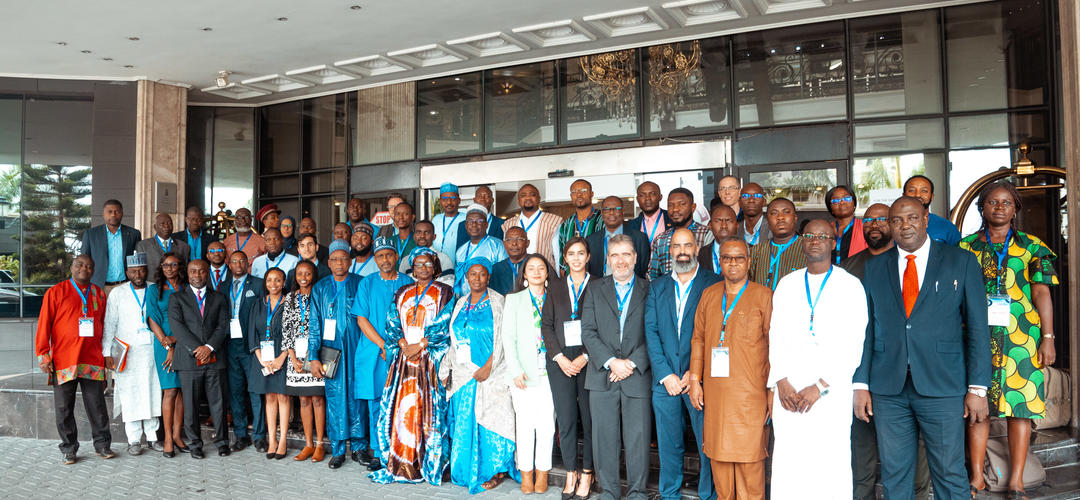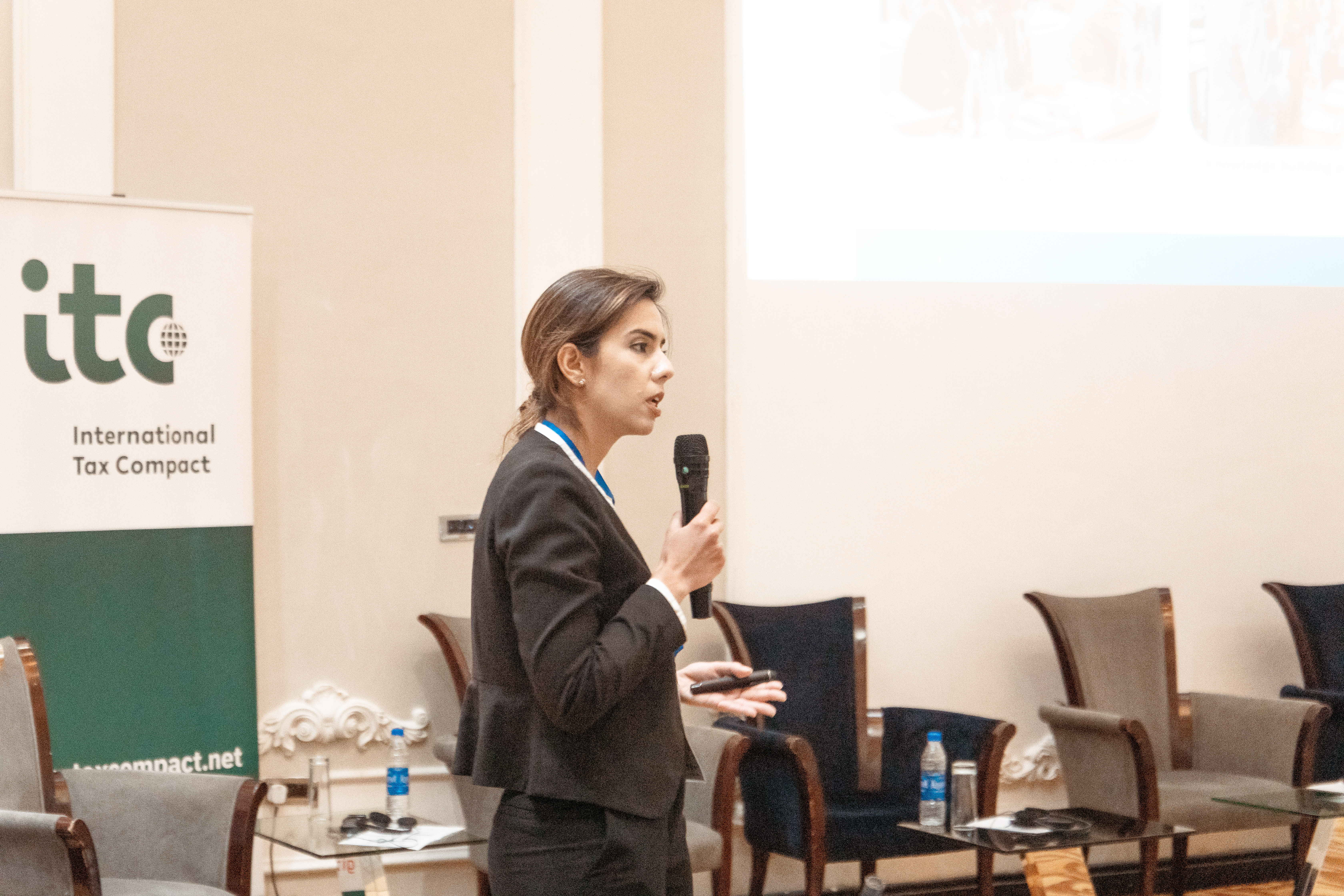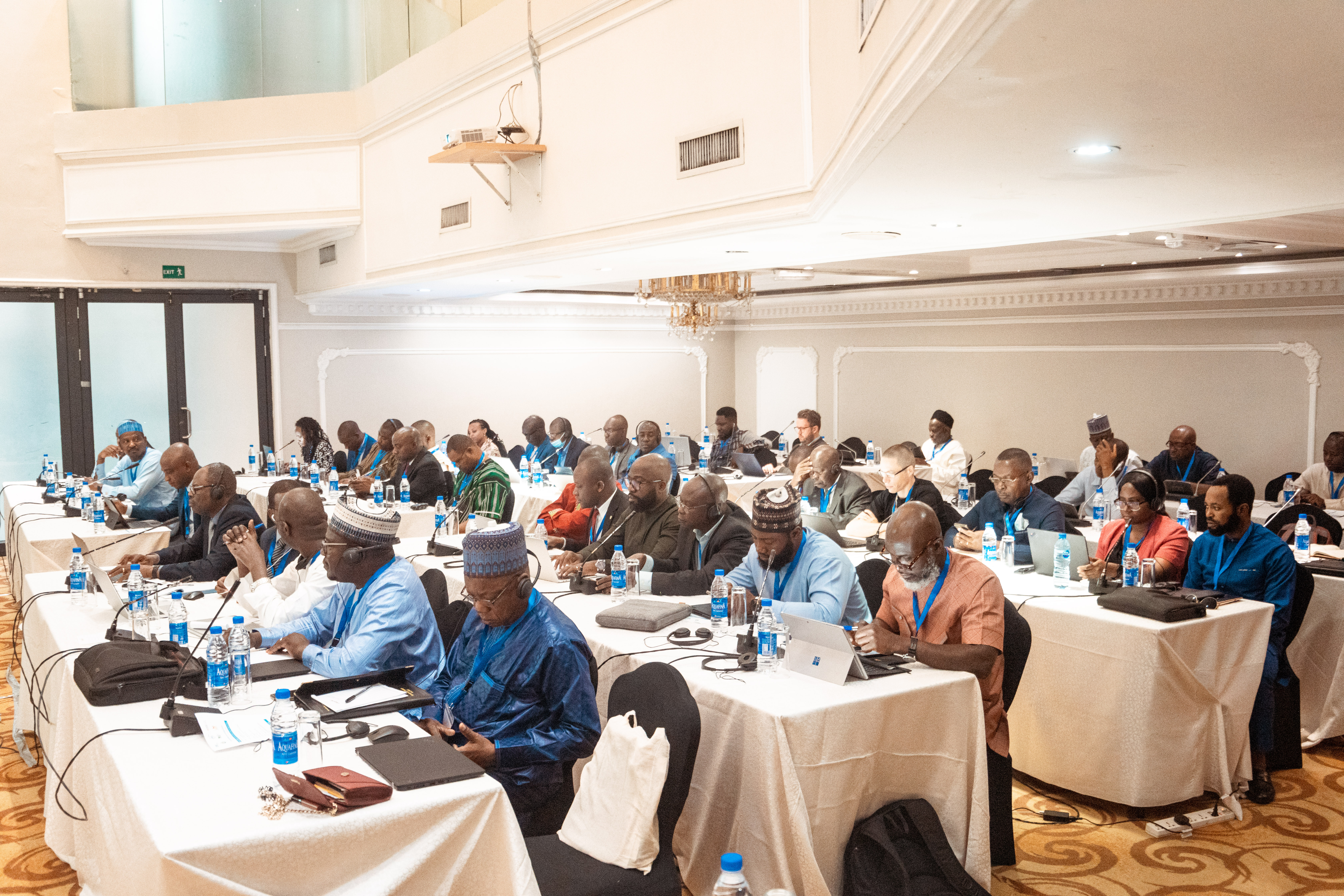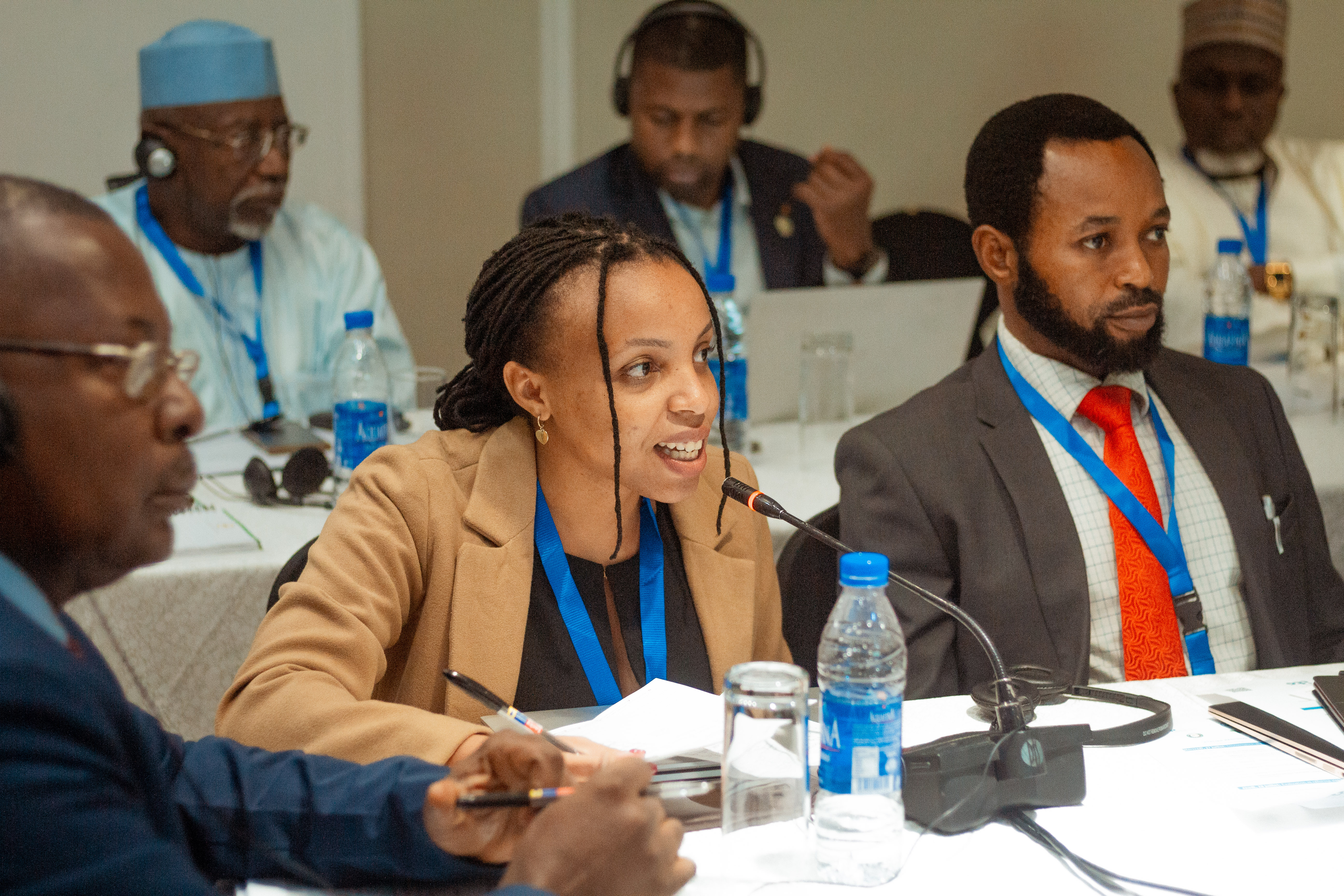

First ATI Regional Workshop on Tax Expenditures in West Africa
Read the full report here
Tax Expenditures (TEs) have a profound impact on countries’ ability to mobilise domestic resources, fight climate change, recover from the COVID-19 pandemic, and ultimately, attain the Sustainable Development Goals (SDGs). The use of preferential tax treatments such as exemptions, deductions, credits, deferrals, and rate relief without putting in place legislative and assessment frameworks to consistently evaluate their impacts against their initial objectives may jeopardise the transparency of national budgets and policies. The Addis Tax Initiative (ATI) recognises the relevance this topic holds and, in the Commitment 3 of the ATI Declaration 2025, ATI members have pledged to “improve tax transparency by publishing tax expenditures regularly to facilitate cost-benefit assessments, ultimately helping to reduce wasteful tax expenditures, improving taxpayers’ trust, and creating a more level playing field for all types of businesses” and “improve inter-agency cooperation on tax expenditures and foster the coordination of granting tax concession activities.”
In tackling these gaps found within TEs governance, estimation, evaluation, reporting, and reform, the ATI, jointly with the Council on Economic Policies (CEP), and the German Institute of Development and Sustainability (IDOS), decided to host a series of regional workshops focused on TE estimation and evaluation. The first West Africa-focused regional workshop on tax expenditure was held in Lagos, Nigeria, between 27 July to 28 July 2022, with support from the West African Tax Administration Forum (WATAF), the Economic Community of West African States (ECOWAS) Commission, and the African Tax Administration Forum (ATAF). The workshop brought together a diverse mix of roughly 50 representatives of tax administrations, Ministries of Finance, civil society organisations and Members of Parliament. For the ATI partner countries across West Africa, the workshop was timely as it gave them the opportunity to acquire critical knowledge needed for their fulfillment of ATI Commitment 3. Giving the opening remark, Tais Chartouni, advisor at the ATI Secretariat, stated that the workshop series is aimed at improving the transparency and efficiency of TEs in ATI partner countries by promoting discussions and peer learning on how to improve TE reporting, establish effective assessments, and elaborate reform pathways to rationalise the use of TEs.

Governance, Estimation, and the Reporting of Tax Expenditures
In the first session of the workshop, the tax expenditure governance framework, “TE value chain” which encompasses the set-up, management, and the assessment of TEs, was introduced by Christian von Haldenwang, senior researcher in IDOS. He highlighted the importance of certain principles such as simplicity and transparency of procedures, regular reporting and evaluation, stakeholder inclusion, citizen participation, and intergovernmental-agency coordination to be considered by governments in each stage of the TE value chain. Christian Hallum (Oxfam) provided additional content to this approach by emphasising the relevance of TE governance in the pursuit of progressive tax systems and the fight against inequality.
As TEs are defined as deviations from a “benchmark taxation system”, the second session of the workshop provided a platform to discuss key normative and technical aspects of benchmark definition and their influence on TE regimes. Kyle McNabb, Tax Policy Advisor at Overseas Development Institute (ODI), presented technical and methodological aspects of establishing a benchmark tax system considering different country experiences. His main message was clear: defining a benchmark is not always straightforward, and there is no general blueprint to it. Insights were also drawn from the Cameroonian and Gambian members of parliament during their panel on their countries’ respective benchmark tax system and respective tax mix. They iterated the need for increased scrutiny of TE reports in country’s parliaments and discussed challenges for effective engagement of different stakeholders in this process.
Advancing the discussions on essential steps in TE management, two sessions were devoted to estimating revenue foregone and reporting on TE. Agustin Redonda, senior fellow at CEP, provided insights on the different methods to estimate revenue forgone, mentioning the possibility of using microsimulation models and providing a few concrete examples of revenue forgone estimation for different types of TEs such as deductions, tax credits and reduced rates.
Furthermore, with focus on income tax, Kyle McNabb (ODI)’s presentation added three relevant points to the discussion: the uncertainty that can exist behind some revenue forgone estimates (due to, for example data or modelling limitations), the importance - and sometimes difficulty - of coming up with a counterfactual scenario, and timing issues - for instance, when it comes to loss carried forward. The session concluded with a panel with representatives from the tax administrations of Benin, Gambia and Cameroon, who commented on the specific challenges they face when estimating revenue forgone in their countries.

Continuing the discussion on TEs transparency at the session on reporting tax expenditures, Flurim Aliu, research fellow at CEP, presented key findings from the Global Tax Expenditures Database (GTED). He noted that though more countries, including in West Africa, have started publishing their data on TEs, the quality of these data is a cause of worry. Globally, only 42 countries publish reports with provision-level data on a regular basis. Frankie Mbuyamba (ATAF) introduced ATAF’s work on the topic and its Data Portal, a valuable data source on VAT and customs TEs in African countries. Case studies from Mali, Nigeria, and Senegal pointed out to challenges in TE reporting such as the structure of the data collected by the tax authorities which does not always allow for revenue forgone estimation; absence of intergovernmental-agency coordination on TEs; lack of human and data-needs resources in the Ministry of Finance to prepare complex TE reports and the non-digitalisation of data.
In the end of the first day of the workshop, a special topical session explored the issue of regional approaches towards revenue estimation and extractive industries. Jules Tapsoba, technical assistant at ECOWAS, recounted the initiative led by ECOWAS and the West African Economic and Monetary Union (WAEMU) to harmonise TE evaluations in the context of West African regional integration. The second part of the session discussed the role of tax incentives in the extractive sector, considering that it is a widespread phenomenon, particularly relevant for those African countries that rely heavily on the production and export of minerals and fuels, resulting in significant loss of revenue. Ezera Madzivanyika (ATAF) presented the results of a study by ATAF and the Intergovernmental forum (IGF) across 49 African countries showing the negative impact of TE in the mining sector. In addition, Viola Tarus (IGF) introduced an evaluation tool designed by the IGF to assess the cost and benefits of tax incentives in the mining sector.
Tax Expenditure Evaluation and Reform
Speaking on the ex-ante assessment & ex-post evaluation of tax expenditures via a pre-recorded session, Jan Loeprick, senior Economist with the International Monetary Fund (IMF), provided an overview of tools and methods governments could use to evaluate the effectiveness and the efficiency of different types of TEs. For practice, Flurim Aliu drew examples from Ireland’s ex-ante evaluation framework and Netherlands’ ex-post evaluation framework. Both countries’ frameworks are based on lists of guiding questions that help to assess the effectiveness and cost-efficiency of individual TEs. Amina Ebrahim of UNU-WIDER shared the outcome of a research on South African government and its 2014 employment tax incentive for unemployment reduction. The result of the evaluation showed that the policy has not led to a systematic improvement in employment for the target population, which has been the main goal of the programme.
Against this background, the final session of the workshop brought to light the need for TE reforms and provided a platform for exchange of experiences on the topic. Christian Hallum (Oxfam) provided an input on the normative underpinnings of the TE reforms. He advised that these underpinnings should aim at strengthening the social contract by improving the progressivity of the tax system and ensuring new funding for essential social services. To achieve them, transparency and sustained stakeholder inclusion are key. The final panel for the event consisted of the members of the parliament and the representatives of regional and civil organisations, who highlighted important points raised throughout the workshop such as the benefits of regional approaches to TE reform, the importance of interagency collaboration and close cooperation between different branches of government (executive – legislative) and the key role of data for the assessment of TEs. Furthermore, the panellists emphasised the importance of the implementation of sunset clauses to avoid the existence of incentives in perpetuity in contracts and the relevance of TE assessment in light of governmental efforts to fight inequality and the need to increase fiscal space for public service delivery.

The overall main takeaway of the workshop in Lagos is that countries in the region have been increasing their efforts to improve TE systems, but much remains to be done. A better governance framework in the TE field is needed in most countries, along with more and better data, not only on the revenue forgone through the implementation of TEs but also on their policy goals and beneficiaries. Such data is key for transparency and accountability, and, at the same time, it is indispensable for TE evaluations. Finally, reforming TE systems is a political process that needs to be steered by strong political will and supported by a sound framework including the participation of and coordination among several institutions such as the Ministries of Finance and other line ministries, revenue authorities as well as parliaments.
For more information, access the full report here.